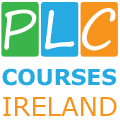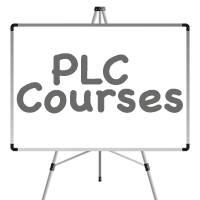Post Leaving Cert Courses
If you have finished your secondary education and would like to develop vocational and technological skills in order to get a job or to go into further education and training, a Post-Leaving Certificate (PLC) course may be what you are looking for. PLC courses are not just open to school-leavers. You will be also welcomed as an adult participant.
A participant contribution of €200 per year (pdf) is charged for PLC students. There are some exemptions to this contribution – see ‘Rates’ below.
PLC courses take place in schools, colleges and community education centres. The courses are full-time and last for one to two years. They offer a mixture of practical work, academic work and work experience. They are designed as a step towards skilled employment and, as such, they are closely linked to industry and its needs. Post Leaving Certificate courses adopt an integrated approach, focusing on technical knowledge, core skills and work experience. Almost half of the time spent on these courses is devoted to knowledge and skill training related to employment, with a further quarter spent on relevant work-based experience.
Most PLC courses are delivered by Education and Training Boards (ETBs). A wide range of disciplines are covered including business, electronics engineering, computing, catering, sport and leisure, theatre and stage, performance art, art craft and design, equestrian studies, multi-media studies, journalism, tourism, marketing, childcare and community care, hairdressing and beauty care, applied science, horticulture etc. See ‘How to apply’ below for a link to Qualifax, the national learners’ database, where you can search for PLC courses.
The qualification you receive at the end of your training will depend on the type of course you have chosen. Many of the 1-year PLC courses offer Quality and Qualifications Ireland (QQI) accreditation at level 5 on the National Framework of Qualifications, while other more advanced courses may offer QQI level 6, which can lead to further studies at third level. Other qualifications such as City and Guilds are also available. It is important to check out the qualification attached to a particular course before you decide to enrol.
Changes to Vocational Educational Committees (VECs)
Since 1 July 2013, Education and Training Boards (ETBs) replaced Vocational Educational Committees (VECs). All services provided by VECs will continue to be provided by ETBs.
Rules
In general, you should have finished your secondary education and taken your Leaving Certificate examination in order to be eligible for a PLC course. However, if you have work experience relevant to the course on offer or think you can demonstrate a particular ability in that area, you should write to the college where the course will take place. Explain your circumstances in the letter and ask to meet the co-ordinator of the course.
You may be eligible for a means-tested student grant or a Back to Education Allowance, depending on your circumstances. Our document on Grants for students in further and higher education describes who qualifies for a grant and how to apply.
Rates
Up to the academic year 2011/2012, Irish nationals and nationals of other EU member states did not have to pay tuition fees for approved PLC courses. Some other categories of students were also entitled to access them free of fees – see studentfinance.ie for details.
A participant contribution of €200 per year was introduced in the academic year 2011/2012.
You do not have to pay the contribution if:
- You hold a full medical card in your own right
- You are the dependent child of a full medical card holder
- You are eligible for a student grant
- You are getting Back to Education Allowance or a VTOS allowance
Colleges offering PLC courses usually also have a ‘course charge’ to cover such expenses as books, uniforms, student services, professional registration fees and exam fees. The amount varies from college to college. Students who are exempted from the participant contribution will still have to pay the course charge.
How to apply
Search PLC Course Listings to find the course in which you are most interested. Apply directly to the school or college offering that course. Because the courses are work-related, you will probably be called for an interview before a final selection is made. These interviews are often quite informal and offer you the opportunity to discuss your particular interest in the course.
Reproduced under licence from CitizensInformation.ie

